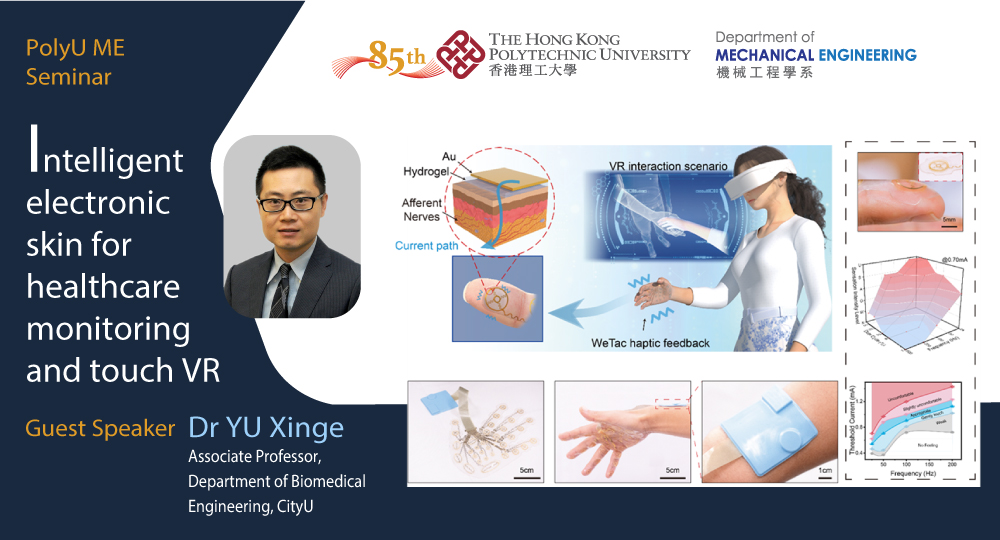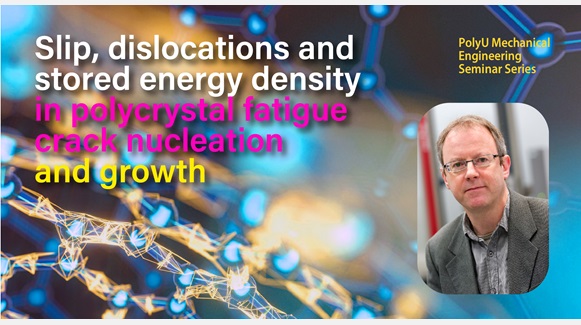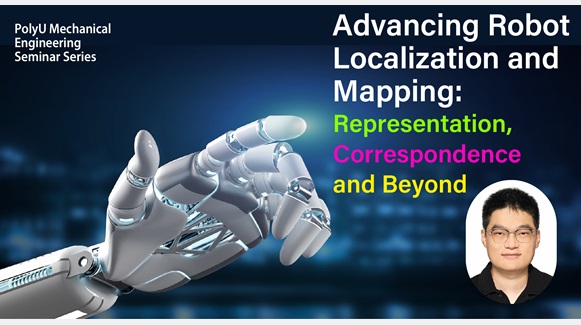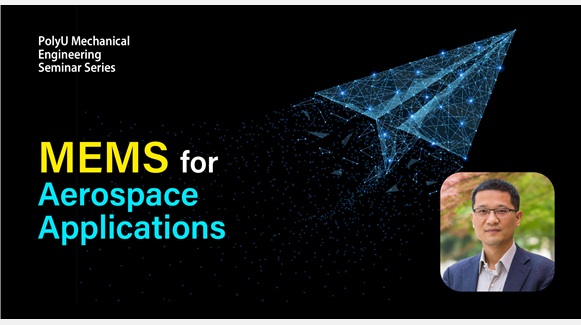Guest Speaker: Dr YU Xinge
Associate Professor, Department of Biomedical Engineering, City University of Hong Kong
Dr Yu is currently the Associate Director of the CAS-CityU Joint Lab on Robotics and the Assistant Director of Hong Kong Center for Cerebro-cardiovascular Health Engineering (COCHE). He is the recipient of Innovators under 35 China (MIT Technology Review), NSFC Excellent Young Scientist Grant (Hong Kong & Macao), New Innovator of IEEE NanoMed, MINE Young Scientist Award, Geneva Gold medal.
Dr Yu’s research group is focusing on skin-integrated electronics and systems for biomedical applications. He has published 130 papers in Nature, Nature Materials, Nature Biomedical Engineering, Nature Communications, PNAS, Science Advances, etc.
Intelligent electronic skin for healthcare monitoring and touch VR
Abstract:
Soft bio-integrated electronics have attracted great attentions due to the advantages of soft, lightweight, ultrathin architecture, and stretchable/bendable, thus has the potential to apply in various areas, especially in the field of biomedical engineering. By engineering the classes of materials processing and devices integration, the mechanical properties of the flexible electronics can well match the soft biological tissues to enable measuring bio signals and monitoring human body health. We present materials, device structures, power delivery strategies and communication schemes as the basis for novel soft bio-integrated electronics. For instance, we will discuss a wireless, battery-free platform of electronic systems and haptic interfaces capable of softly laminating onto the skin to communicate information via spatio-temporally programmable patterns of localized mechanical vibrations. The resulting technology, which we refer as epidermal VR, creates many opportunities where the skin provides an electronically programmable communication and sensory input channel to the body, as demonstrated through example applications in social media/personal engagement, prosthetic control/feedback and gaming/entertainment. Other demonstrations will include a flexible bio piezoelectric microsystems for tissue pathology biopsies (cancer diagnosis), and skin like patches as sweat sensors for healthcare monitoring and energy harvesting.








